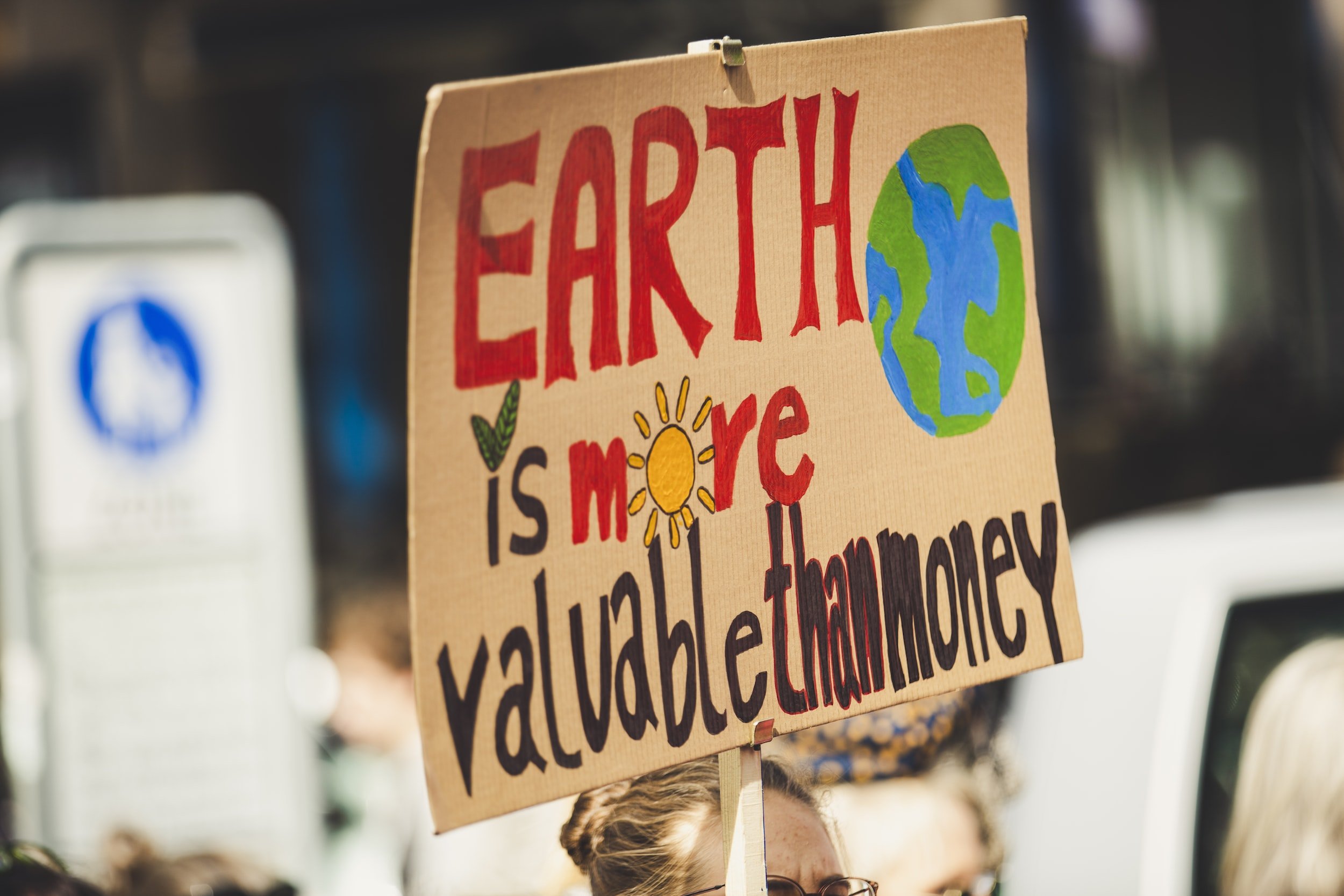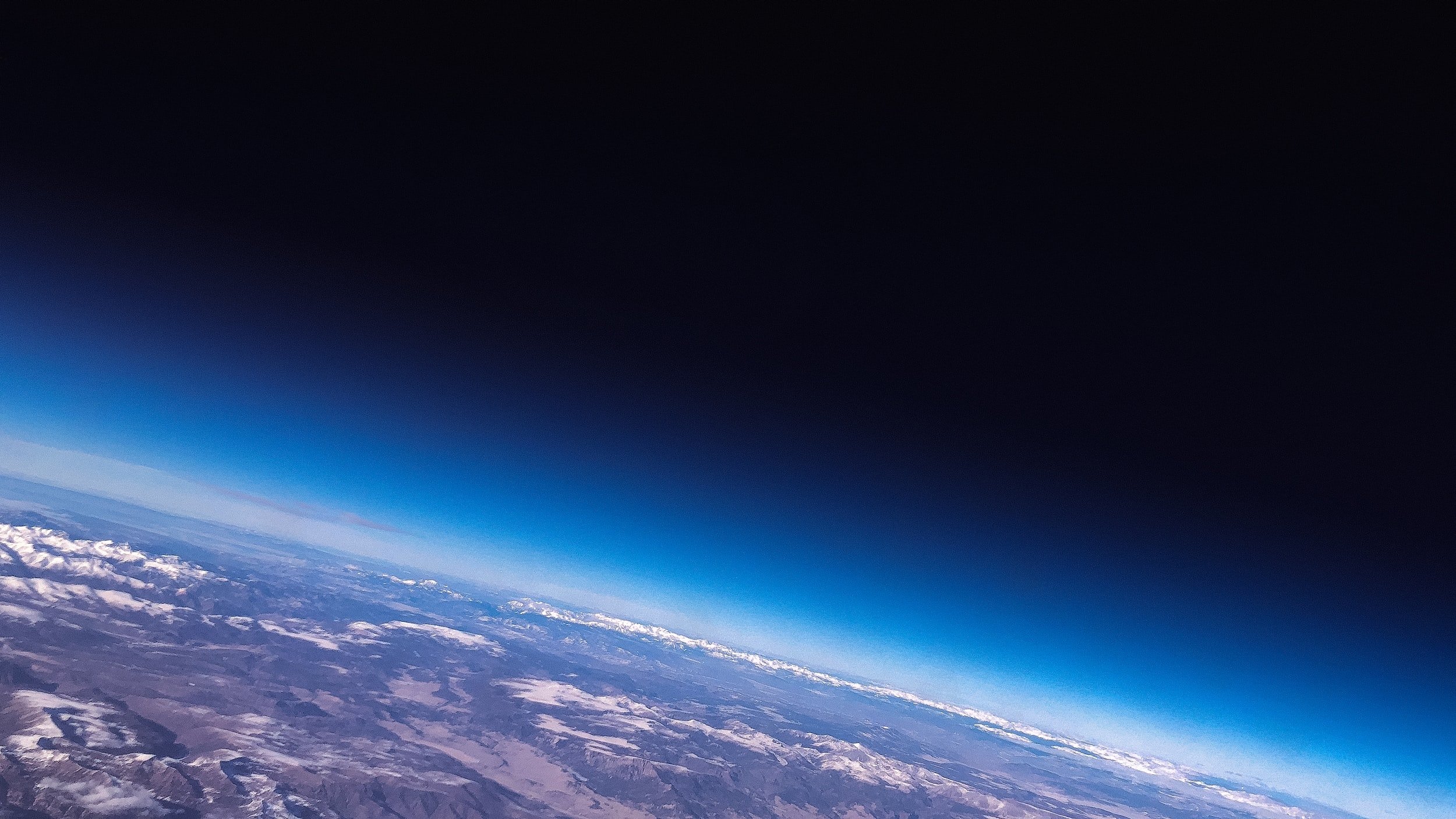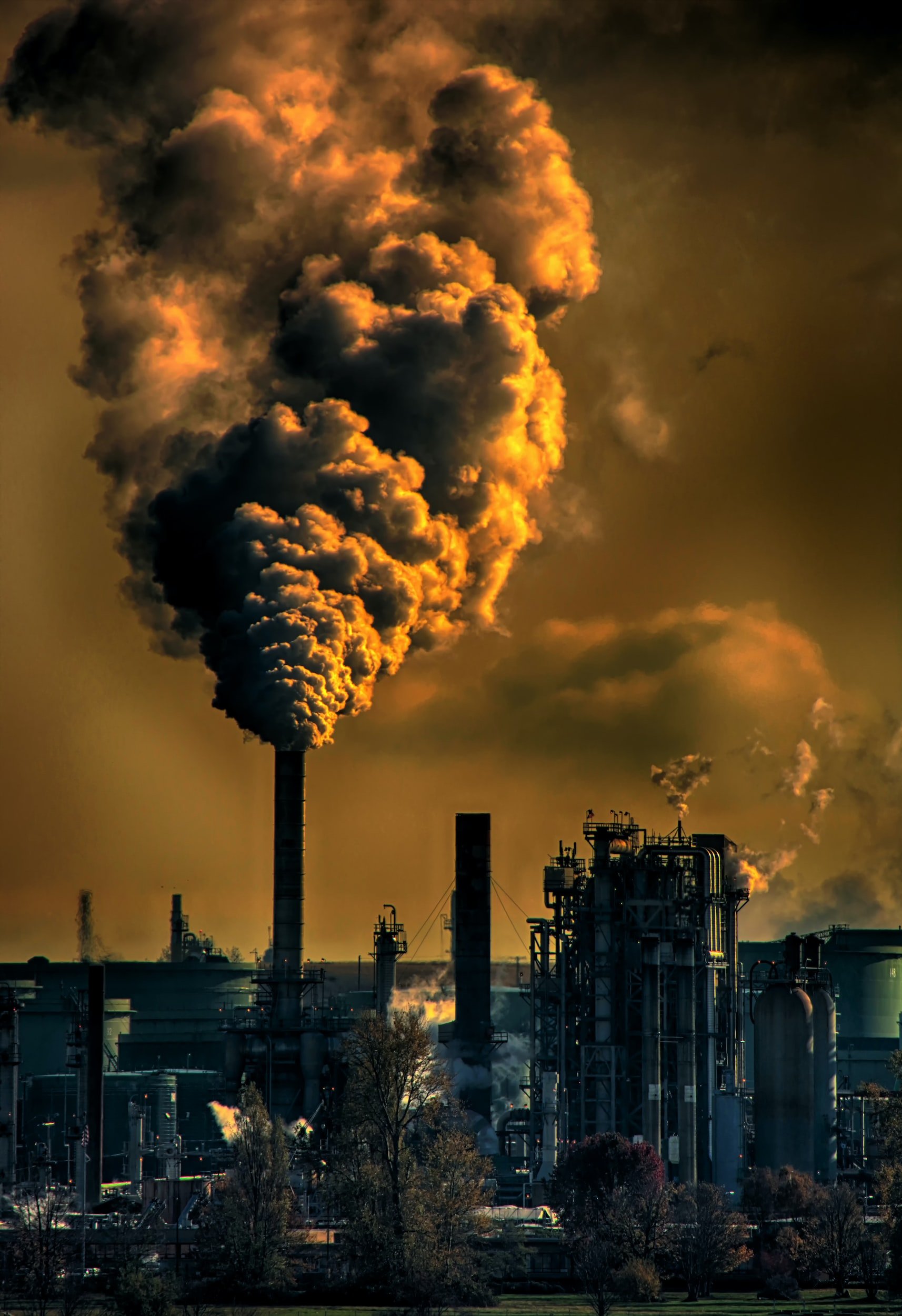The Earth and All Of Us
By: Melina Farahmand
Founder & Owner of Past Present Future Co.
Executive Director: Guardians of Our Democracy
Author of: From Dust to Breath and When the Stars Collide
The following piece was written for a college Environmental Political Theory course.
Since the Industrial Revolution, scientific data shows us that we have gone on a consistent upward trend in greenhouse gas emissions that have altered our atmosphere and gravely affected the state of the planet. The United States Environmental Protection Agency found that concentration levels have risen by over 40% in the atmosphere in just carbon dioxide emissions. At the same time, methane and nitrous oxide have also increased dramatically since pre-industrial levels. Across human and natural factors, "It is unequivocal that human influence has warmed the atmosphere, ocean and land" (IPCC). We can attribute rising greenhouse gas emissions to factors correlating to human influence, including deforestation, transportation, manufacturing, over-consuming goods and products, and generating energy. These activities require us to burn obscene amounts of fossil fuels to generate the demands of the growing human population. It is part of the fabric of our modern-day society, which sometimes feels like it is less modern than we make it out to be. It is important to mention that this is a worldwide issue and is not only isolated in the US. Everyone is responsible for the phenomenon to varying degrees. So, let's play the blame game. Who is most responsible here? While all countries contribute to the climate crisis, the real culprits, those most responsible for causing the harm associated with climate change, are the world’s wealthiest countries because they pushed forward organized climate denial within government and corporations, high rates of consumerism, and lack of accountability coupled with lack of awareness.
Have you argued with someone on the internet or in real life about the existence of global warming and climate change? Well, it is often not a great experience that leads to frustration and anger. But the reason why so many people do not believe in it can be connected to the organized climate denial that corporations fabricated many decades ago and that the governments of wealthy countries pushed forward without consequence. Denying scientific facts is very prevalent, and we witnessed that during the COVID-19 pandemic. In places like the United States and other developed countries, the politicization of science is a severe issue. While people should always ask questions about research and question special interests, climate change has been proven repeatedly, with a global consensus among scientists, that it is a real threat to humanity and the planet. Because of lobbying by Big Oil and other high-polluting industries, many politicians in wealthy countries (especially in the United States) will either deny the research and revert to old sayings such as “the climate has always changed” or “the scientists are lying” or they will disregard the issue and move forward with their agendas. Organized climate denial by the elite created formulated doubt among the everyday people. In the reading, Merchants of Doubt, the authors examined the tobacco industry’s power in connection to scientific studies on the smoking-cancer link, which the industry denied and called the science dubious.
What’s not so shocking is the extent they went to prove their products safe. Power like that gives you the ability to change things. More importantly, “By the end of the 1950s, the tobacco industry had successfully developed ties with doctors, medical school faculty, and public health authorities across the country” (20). Even with the early studies, people in healthcare would generally take a stance against smoking and acknowledge its adverse effect on human health. Big Tobacco bought out a select few healthcare individuals and had them share opinions that would sway the agenda. Even having a few doctors deny the science constructed enough doubt in people's minds that tobacco products were safe and that the science was wrong. An enterprise can only accomplish something like this with money and power. Keep this notion in mind when we talk about the fossil fuel industry.
Furthermore, “Industry doubt-mongering worked in part because most of us don't really understand what it means to say something is a cause. We think it means that if A causes B, then if you do A, you will get B. If smoking causes cancer, then if you smoke, you will get cancer. But life is more complicated than that. In science, something can be a statistical cause, in the sense that if you smoke, you are much more likely to get cancer” (34). This begs the question if the average person knows as much as they think they do, especially in light of formulated doubt. How much do we really know?
One major takeaway from the Merchants of Doubt reading is how “A scientific discovery is not an event; it's a process, and often it takes time for the full picture to come into clear focus” (17). Science covers an expansive spectrum of topics, but testing theories is similar across this range. If we take this quote and look at it in the context of climate change, the discovery of its existence and humanity’s contribution to it has been established over time and not in one event. But of course, with powerful influences like the fossil fuel industry buying politicians, the chances of climate change being taken seriously from the early days of its discovery were slim to none. That is by no accident, and you can thank ExxonMobil for that. In the 1980s, the oil corporation held onto research that their scientists had conducted to see the link between the high rates of fossil fuel usage and global warming (the global increase in the Earth’s surface temperature). Their scientists found what we know now that the link between the two is strong, but they sat on the science and went on a campaign to deny it later. How did they get away with it and continue to pollute? With government support, of course. Organized climate denial was born from these industries' power and influence to cherry-pick data and information that fit their agendas; the same happened with the Tobacco industry. But the real culprits again are wealthy countries and their governments for failing to set the record straight and hold corporations liable. By allowing these entities, who are part of the biggest contributors to rising greenhouse gas emissions, to lie and alter facts so they continue business as usual, they are just as complicit in this climate mess we find ourselves in today (and will continue to). Organized climate denial, fabricated by the wealthy and powerful, has damaged the minds of the everyday citizen/voter. We cannot solve a problem without first acknowledging there is one. When too many people believe climate change is not real and humans do not contribute to it, they won't change their behaviors individually. Nationally, they won't demand more from governments to address the crisis they don’t believe is real.
One individual behavior that people won’t change in light of organized climate denial is the overconsumption of goods. Cultural norms in the wealthiest nations have allowed for over-consuming things we don’t need to become the average behavior of people in every class. The rate at which rich nations consume goods can be attributed to affluenza, “a painful, contagious, socially transmitted condition of overload, debt, anxiety, and waste resulting from the dogged pursuit of more” (Gaaf et al.). Affluenza can be attributed to wealthy countries such as the United States because the nation is often viewed as the economic model other countries follow (1). Therefore, according to the authors, the virus can be found on all continents. Consumerism and overconsumption can be joy-guzzling, a concept that refers to the lack of moral obligations to stop oneself from contributing to the already high emissions because one would rather do something that brings them happiness. I’d argue that this is something everyone does occasionally, but this could be more prevalent in wealthier nations as there are no repercussions for joy-guzzling. In "Affluenza,” the authors noted that “human beings have been producing and consuming at a rate that far exceeds the ability of the planet to absorb our pollution or replenish the stock” (2). Resource depletion is happening everywhere, but the world’s wealthiest nations take more than they should from developing nations. Utilizing social nudges (a method of influencing people to do something) is an excellent way to help address over-consumerism on an individual level. Still, if enough people start making these changes, they could demand the same from their governments.
With all that said and done, one of the biggest reasons wealthy countries are most responsible for climate change and high greenhouse gas emissions is the lack of accountability we see in leadership and government. Corruption happens in every nation, but speaking of the United States specifically, all branches of government have faced issues, and hardly any action is taken to hold influential people responsible. Accountability is essential, and holding those who have allowed high emissions to occur accountable is crucial since we, as individuals, won’t be able to solve this dire crisis without first admitting there is one. Holding governments and corporations accountable will lead us in the right direction. By doing so, we are also pressuring them to address anti-science rhetoric fabricated by the corporations and pushed forward by climate-denying politicians (with special interests). Following through on enforcement will address this issue. Meaningful climate action cannot be leveraged in countries that don’t value or implement accountability.
At the rate we are going, climate change cannot be stopped, but we still have time to mitigate some of its impacts. We all must take bold actions to create long-lasting change for ourselves and the future generation. There are a few actions I recommend that rich countries take first. My first recommendation ties back to the idea that we cannot solve any problem without recognizing there is one – we are letting far too many people in power spread false information about climate change and global warming. Wealthy countries must first acknowledge the link between rising atmospheric emissions levels and the severe adverse effects on the planet. Then they must hold leaders accountable for spreading false realities about the state of our world. Secondly, wealthy nations should take on the responsibility of paying reparations to developing countries that have long suffered from the greedy behaviors of the elite. In addition, rich countries should also utilize more of their budgets to invest in research and better solutions for changes we need to make to national policy while also considering taxing leaders of high-emitting industries. My last suggestion is arguably the most crucial one of them all. To create change on an issue that is global, we have to learn to collaborate with our neighbors. With all of these big climate conferences, you would think that means we are already working together, but getting together for a meeting once a year is not sufficient for collaboration. Countries should be actively working together and communicating new information as they gather it, share solutions they have found to work, and help each other. We all share the earth, but the resources it provides us are not shared equally. In the “Tragedy of the Commons,” we learned what happens when a select few take more than they should and when people don’t communicate. Therefore, all countries, rich or poor, must communicate and collaborate. The earth we share is in crisis; let’s step up and do something about it.
Works Cited
“Climate Change Science/Causes.” EPA, Environmental Protection Agency, 4 May 2023, www.epa.gov/climatechange-science/causes-climate-change.
“The Effects of Climate Change.” NASA, NASA, 25 Apr. 2023, climate.nasa.gov/effects/.
Graaf, John De, et al. Affluenza: How Overconsumption Is Killing Us--and How to Fight Back. Berrett-Koehler Publishers, 2014.
Kehoe, Jacqueline. “Holding Governments Accountable for Climate Change.” Goldman Prize Organization, 2022, www.goldmanprize.org/blog/holding-governments-accountable-for-climate-change/.
“Merchants of Doubt.” Merchants of Doubt, www.merchantsofdoubt.org/.
Oxfam. “Who Is Responsible for Climate Change?” Oxfam, 7 Nov. 2022, www.oxfamamerica.org/explore/stories/who-is-responsible-for-climate-change/.
“Reports.” IPCC, www.ipcc.ch/reports/.
“The Rich, the Poor and the Future of the Earth: Equity in a Constrained World - World.” ReliefWeb, 23 Apr. 2012, reliefweb.int/report/world/rich-poor-and-future-earth-equity-constrained-world.








